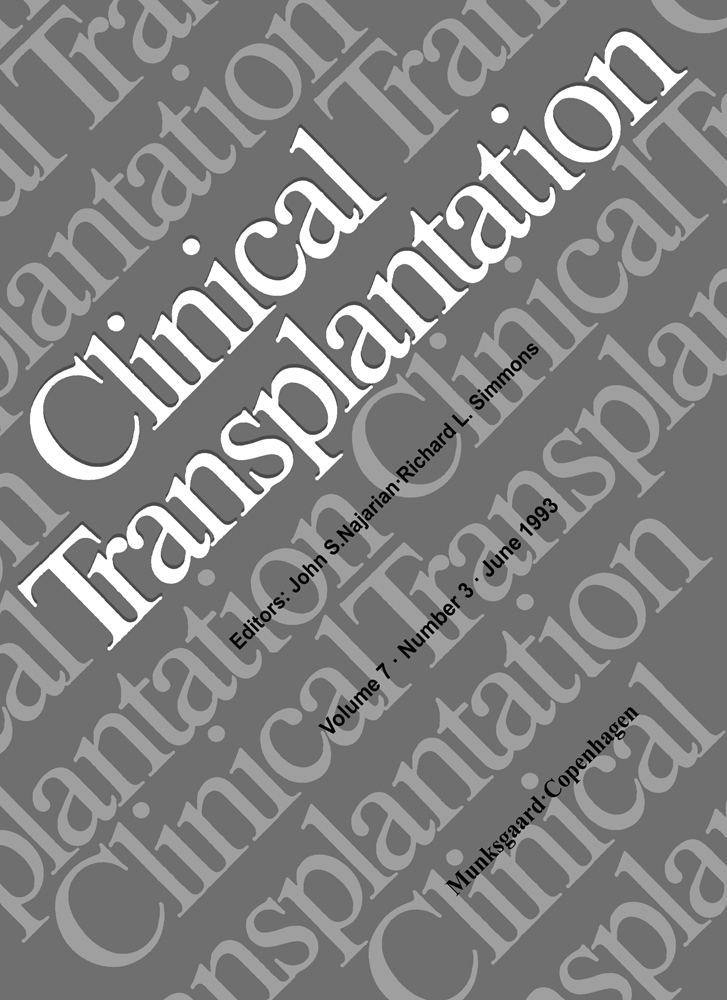The effect of transfusions on renal allograft survival in the cyclosporine era: A single center report
Abstract
The potential efficacy of prior transplant transfusions on graft survival in the cyclosporine era has been reported from several centers which are reconsidering their transfusion policy. The purpose of this study has been to evaluate the results obtained in a large series of first kidney transplant patients (N = 284) treated with cyclosporine. Our past experience showed a beneficial effect of blood transfusions in cadaveric renal transplants on conventional immunosuppression. Forty-eight patients never received blood transfusions, 85 patients received 1-2 transfusions, 72 patients received 3-5 transfusions and 79 patients received more than 5 transfusions in their pre-transplant periods. We did not show an obvious beneficial effect of prior blood transfusions in improving 1- and 2-ycar patient and graft survival. In fact, no statistically significant differences were found among any of the groups depending upon the transfusion status. In the transfused group, graft survival rates were 81.4% (I year) and 77.8% (2 years) while in the non-transfused group they were 81.2% (1 year) and 78.4% (2 years) (p = n.s.). The patients who rejected had a significantly lower graft survival in the transfused group as compared to the non-transfused group. On the other hand, the transfused patients without rejection episodes experienced the best graft survival, suggesting a beneficial transfusion effect. We conclude that since it is impossible to determine which patients will not reject, pre-transplant transfusions under certain circumstances might be harmful, or at least not beneficial. We would recommend restricting transfusions in cyclosporine-tested patients only in cases of therapeutic necessity.




